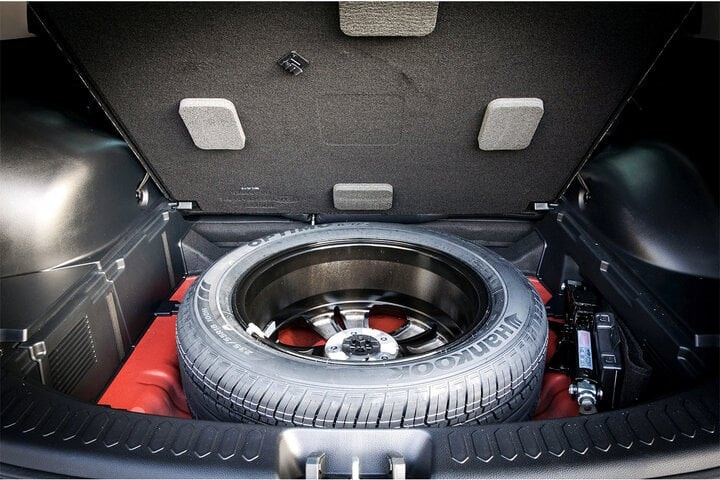How to use spare tire without wasting?
When tires are not used for a long time, the rubber will quickly age and lose its elasticity due to friction when running on the road.
The best practice is to occasionally change the spare tire to ensure it is used regularly.
According to the manufacturers' recommendations, even if the tires have not worn out after a few rides, they still need to be replaced after 6 years; even if the tires are brand new and unused, they still need to be discarded after 10 years. That is why the year of manufacture must be printed on the tires so that customers can know and prepare accordingly.
Many people who travel long distances get flat tires and have to use spare tires instead, but instead of using them as a lifesaver, they use them for longer distances than the manufacturer specifies.
Since spare tires are used infrequently, automakers have adopted narrow, compact tires to save space and weight, so using this temporary tire longer than recommended can have many consequences.

First, spare tires are not as durable as regular tires. The tire’s real strength comes from the steel and polyester layers underneath the rubber. Typically, spare tires have fewer of these layers than regular tires, to save space. This greatly limits puncture protection and cornering ability.
Engineer Tran Van Chung, Director of Auto Tran Chung garage (Dinh Nup, Me Tri, Tu Liem, Hanoi), advises:“When the car runs about 20,000 km, we should rotate the four wheels diagonally: the spare rear tire goes before the driver's, the driver's rear tire goes before the spare, similarly the driver's front tire goes behind the spare, and the spare front tire goes behind the driver's.”
However, according to Mr. Chung, instead of moving the rear tire first, this tire will be moved to the spare tire, the brand new spare tire should be put in first. From this point on, the spare tire will be changed every time the other tires are patched or changed periodically, it is best to use it regularly.
Continue driving until it is time to change tires, choose two out of five tires (including the spare) with the best durability and put them in the back row, buy three new tires and put them in the front row as spares. At this point, if the car is still running well, then rotate and buy more tires.
Normally, the size of the spare tire is smaller than the main tire. Because manufacturers want to bring convenience to users, it can be placed in the trunk, behind the rear of the car or under the car.
However, there are still some types of vehicles that have spare tires the same size as the main tires, to ensure that the vehicle can continue its journey without interruption when the main tire has a problem.

